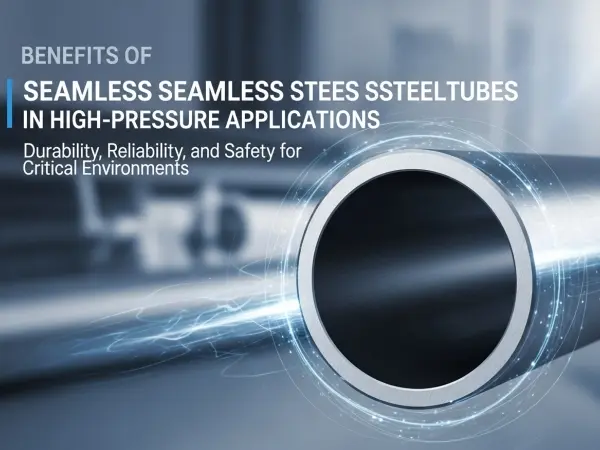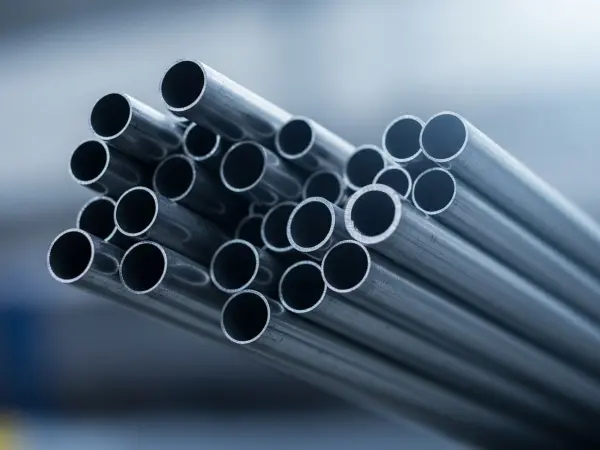
The cold drawn seamless steel tube plays a vital role in industries such as automotive, hydraulic systems, and precision machinery. Its superior surface finish, dimensional accuracy, and mechanical strength make it a preferred choice for high-performance applications.
However, during the cold drawing process, one of the most common and costly defects is cracking. Cracks not only reduce product quality but can also lead to material waste, equipment wear, and production downtime.
This article explains the main causes of cracks and provides effective solutions to prevent them, ensuring stable production and high-quality output.
Cold drawing is a precision forming process where a seamless steel tube is drawn through a die to reduce its diameter and improve mechanical properties.
During this process, the material undergoes plastic deformation at room temperature, which increases strength but also introduces internal stresses. If these stresses exceed the material’s ductility limit, cracks may occur.
Key steps in cold drawing:
· Tube preparation and cleaning
· Phosphating and lubrication
· Drawing through the die
· Annealing (if needed)
· Straightening and inspection
Each stage must be carefully controlled to avoid surface or internal defects.
1. Poor Surface Quality of Raw Tube
Surface defects like scratches, pits, or inclusions in the mother tube can act as crack initiation points during drawing.
2. Improper Lubrication
Insufficient or uneven lubrication increases friction and causes localized stress concentrations on the tube surface.
3. Inappropriate Drawing Speed or Reduction Ratio
Excessive deformation or a high reduction rate can exceed the material’s deformation capacity, leading to cracking.
4. Low Material Plasticity or Incorrect Heat Treatment
If the raw tube or intermediate annealing is not properly controlled, the steel may become brittle.
5. Unstable Die Condition
Worn or damaged drawing dies can produce uneven forces and surface stress, initiating micro-cracks.
To ensure the cold drawn seamless steel tube remains defect-free, manufacturers should focus on the following preventive measures:
(1) Improve the Quality of the Mother Tube
· Select high-quality seamless tubes with uniform wall thickness and minimal surface defects.
· Conduct ultrasonic and visual inspections before drawing.
(2) Optimize Lubrication
· Use suitable phosphate coatings or high-performance drawing lubricants.
· Maintain consistent lubrication thickness to reduce metal-to-metal contact.
(3) Control Drawing Parameters
· Adjust the reduction per pass according to material grade and tube size.
· Monitor drawing speed to balance productivity and material safety.
· Use multi-pass drawing with intermediate annealing to restore ductility.
(4) Ensure Proper Heat Treatment
· Conduct annealing between passes to remove residual stress.
· Control temperature and atmosphere to prevent decarburization or oxidation.
(5) Maintain Die Quality
· Regularly polish and inspect dies for wear or damage.
· Ensure correct die angle and surface finish for smooth metal flow.
A consistent inspection routine helps identify potential cracking risks early:
· Visual inspection for surface defects.
· Eddy current and ultrasonic testing for internal flaws.
· Tensile and hardness testing to ensure mechanical stability.
By combining strict process control and real-time monitoring, the quality of cold drawn seamless steel tubes can be significantly improved.
Preventing cracks in the cold drawn seamless steel tube manufacturing process requires a comprehensive approach — from raw material selection and lubrication control to proper die maintenance and heat treatment.
By implementing these best practices, producers can minimize defects, reduce costs, and deliver high-precision tubes that meet international standards like EN 10305-1 or ASTM A519.
Ultimately, a well-optimized cold drawing process ensures not only product reliability but also long-term competitiveness in the steel tubing industry.
At Centerway Steel, we specialize in manufacturing high-quality seamless steel tubes and cold drawn seamless steel tubes with excellent dimensional accuracy and superior mechanical performance.
With advanced production lines, precise heat treatment control, and strict quality inspection systems, we ensure every tube meets global standards and performs reliably under demanding applications.
Our products are widely used in automotive, hydraulic, construction, and mechanical engineering industries, trusted by customers worldwide for their consistency and durability.
If you are looking for a dependable seamless steel tube supplier, Centerway Steel is your ideal partner — providing premium-quality tubes, competitive pricing, and professional technical support for your next project.
Contact Centerway Steel today to learn more about our cold drawn seamless steel tube solutions and customized service options.


